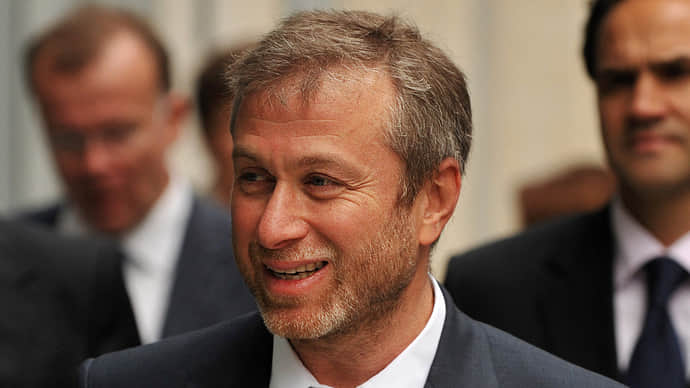But now we dance
How do Ukrainians live with the war? What does normality mean, what purpose do plans for the future have when a missile could strike in the next moment? A personal essay by filmmaker and writer Iryna Tsilyk. The post But now we dance appeared first on Euromaidan Press.
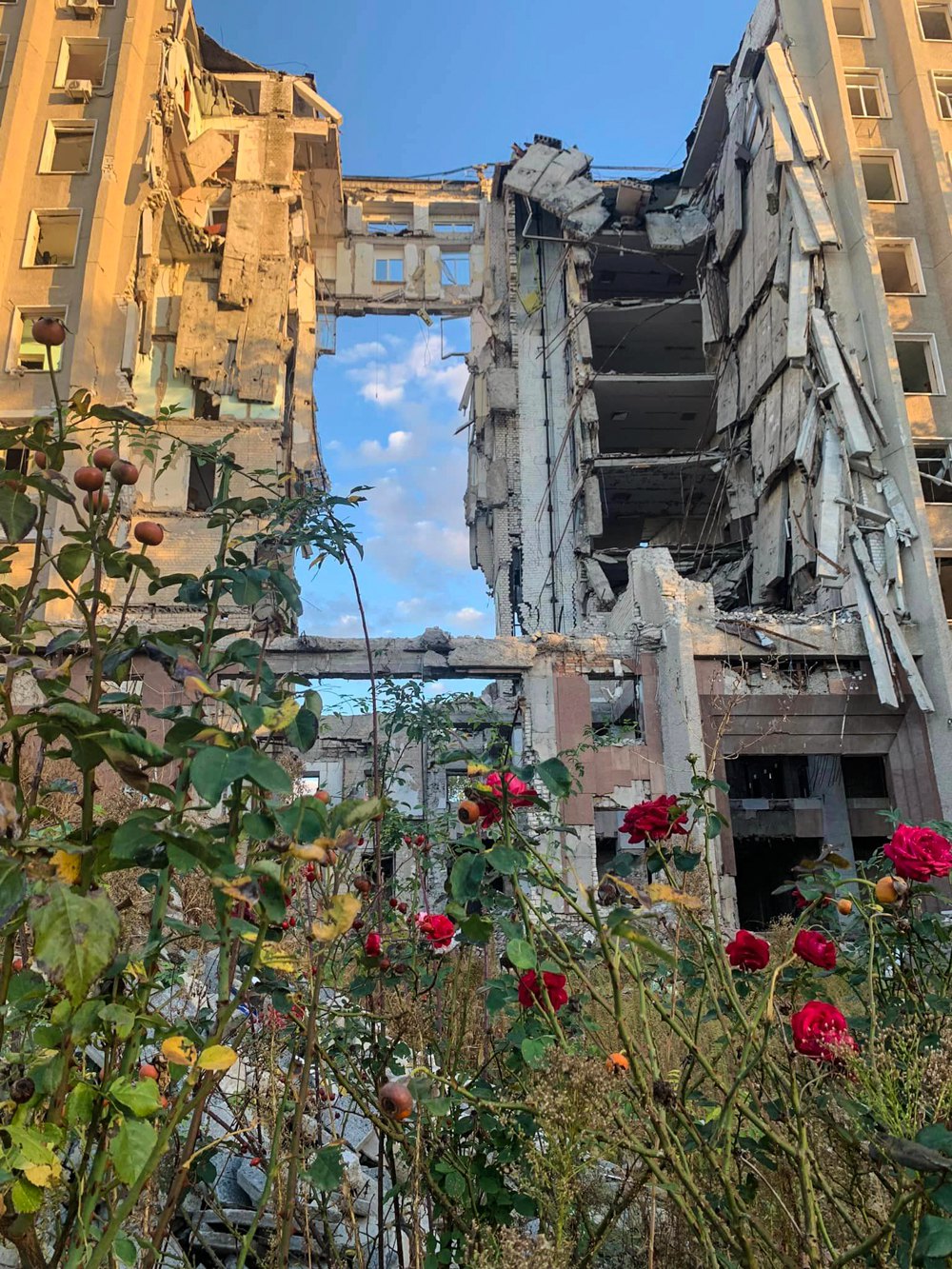
“What do you think will happen next with the fate of Ukraine?” – a German film producer asks us during business negotiations and adds: “We need to think strategically.”
We talk in Amsterdam during the forum of the largest documentary film festival in the world in speed dating mode: I and my Ukrainian producer are sitting at one of the tables in the meeting room, and various potential partners, mainly producers from European and North American countries, join us in turns to get better acquainted with our project.
All these people are very different, so are their questions and remarks. One Swiss producer, for example, shared with us her observation that “there are so many wars to choose from, haha.” She was joking, I got it. We Ukrainians, as real connoisseurs of humor, and especially black humor during the war, do understand everything. And it’s true, there is a rich selection now. Here you go, a project about refugees and their injuries. Here’s one about rape as a type of war crime. On PTSD and rehabilitation of war veterans. On the thousands of kidnapped children, a manifestation of genocidal war. On the rehabilitation of former prisoners after torture. And so on and so forth. Which war do you prefer? Israeli-Palestinian? Or maybe Armenian-Azerbaijani? Should we still offer the Russian-Ukrainian one or is it no longer relevant enough?
As a Ukrainian film director working on a new project – an animated documentary essay film about my own life and that of my loved ones, , as well as the subtle changes we’ve undergone during the war – I certainly understand the importance of thinking strategically in our business. Should potential partners invest heavily in yet another lengthy Ukrainian project with uncertain outcomes? How best to build its dramatic core and production timeline when the war in Ukraine has already lasted 10 years with no happy ending in sight? Will the authors of the film still be alive and sane by the time the lengthy animation process finally reaches the finish line?
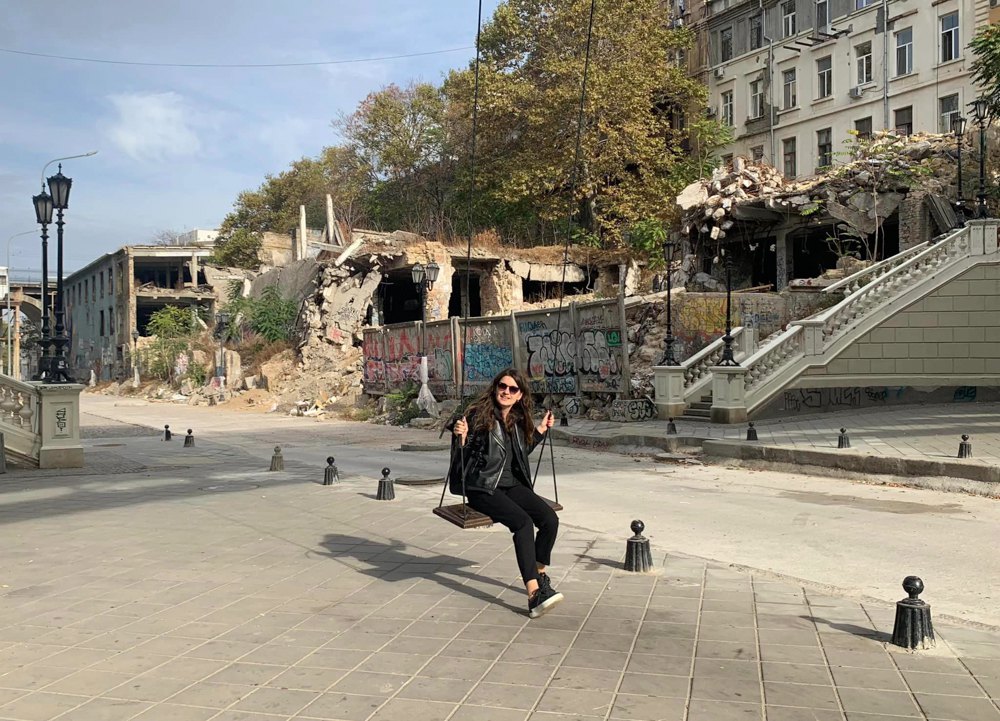
Thinking about that last question, I let out a small chuckle. Still, there’s nothing funny about it. This past summer, my close friend and colleague, the Ukrainian writer and intellectual Victoria Amelina, was killed by a Russian missile strike on the pizzeria where she was dining with colleagues. This fall, Victoria was supposed to go on a writing residency in Paris – to finish her investigative book on the crimes of the Russian army: she was gathering testimonies from various women in liberated territories. Now the book will not be finished by its author, not to mention the rest of the young woman’s unlived life as a mother and so on.
“Unfortunately, I cannot confidently guarantee you what the fate of my country will be in the coming years,” I finally say. Not long ago in Luxembourg I was also asked “how much longer Ukrainians can resist the Russians.” I obviously cannot predict that either. The history of my country knows many likely scenarios. For centuries, Ukrainians have been fighting for their dignity and freedom, but the odds have almost always been unequal, and thus our colonizers would start subduing us with repressions, shootings, engineered famine, the GULAG. We went through all this, every Ukrainian family is full of these stories. Mine also had those who were sent to Stalin’s camps, those who barely survived the famines, and other tales.
And yet, something has changed: for the first time, Ukrainians and their tragedies are so visible to the world. I recently translated from Ukrainian into English the rather well-known poem “Remember” by the Ukrainian author Oleksandr Oles. In 1931, he wrote this painful text. Having spent many years in exile far from Ukraine, the poet was deeply devastated by the events in his homeland and the reaction, or lack thereof, from European society.
“When tortured Ukraine was struggling for life
and fighting with enemies vicious and violent,
it needed support in its boundless strife,
but Europe was silent.
When fearless Ukraine was waning in battle,
the rivers of blood spilled around to find
some help for unequal and resolute struggle,
but Europe was blind…”
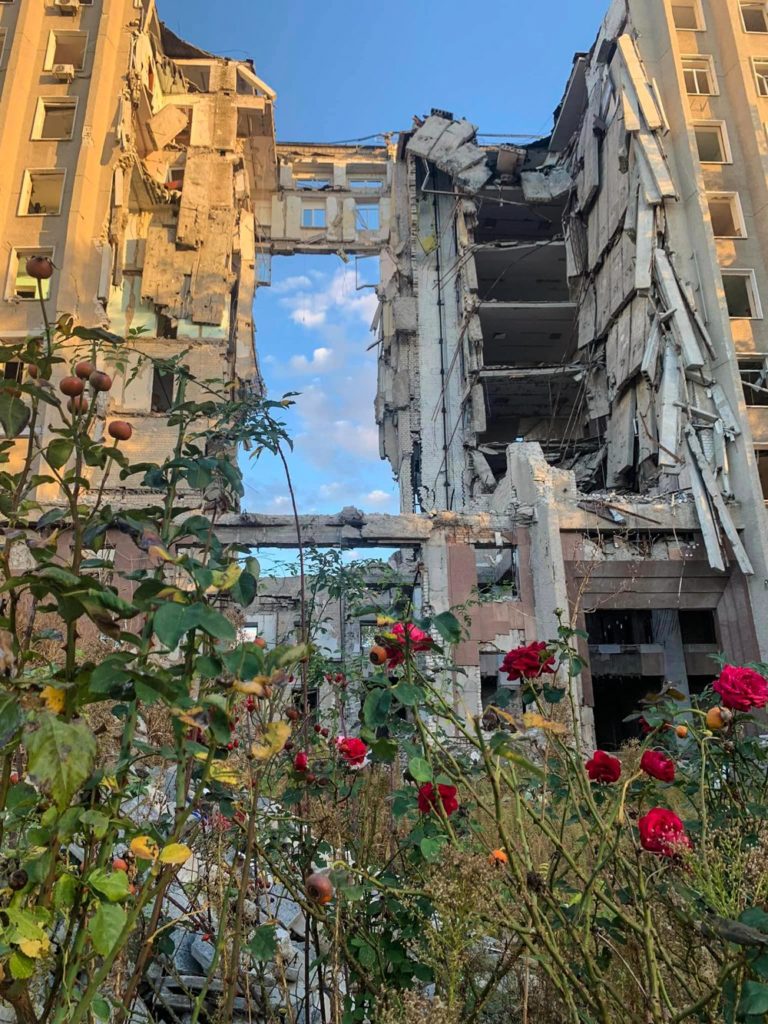
And so on. Five stanzas, each ending with a cry of pain that Europe is silent. The fate of this author, like that of his son, another famous Ukrainian poet Oleh Olzhych, executed by the Gestapo, is tragic and sad. But there are hardly any others in the history of Ukrainian literature.
Well, at least now Ukrainian culture is becoming more visible to the world. We are also finally receiving substantial military assistance from various countries to mount decent pushback against the hydra with a million heads.
However, our allies are nervous and doubtful, wanting guarantees, hoping for our victory while also fearing it. Dear Ukrainians, you must go through this war neither on foot nor on horseback, neither clothed nor naked, you must impress everyone with a spectacular counterattack, but without F-16s and enough modern weapons, you must uphold Europe’s honor without angering the hydra too much lest it pulls out its nuclear trump card. But how long will your resilience last? How many more brave boys and girls can you throw into the maw of the monster? What should we ultimately bet on – red or black? It is important to think strategically.
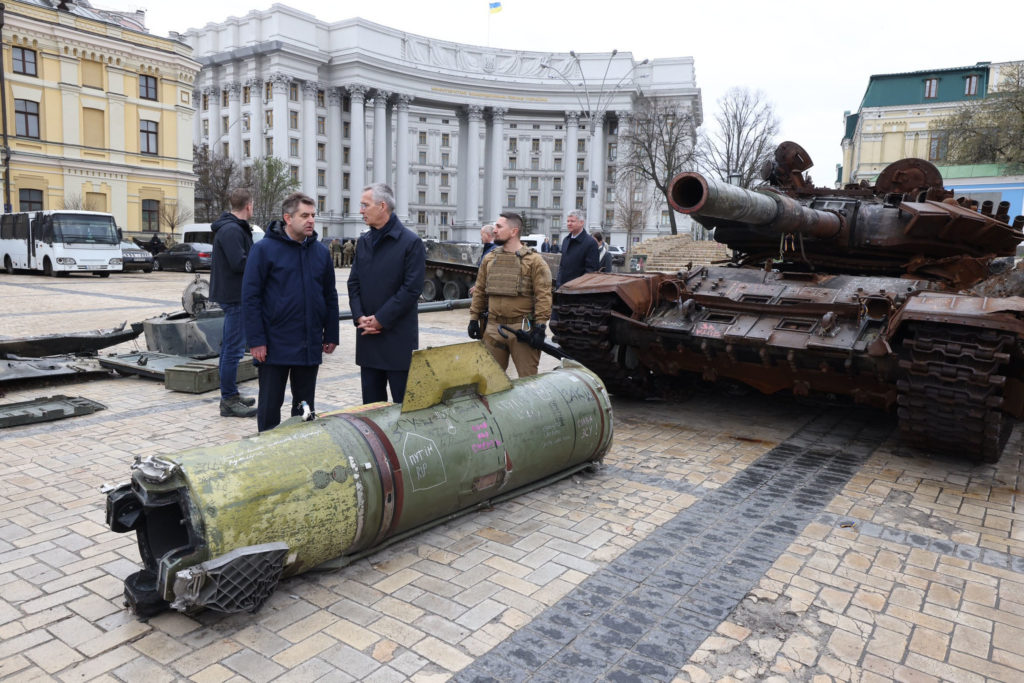
But enough sarcasm. As someone who constantly travels the world for my profession, balancing between different realities, I do truly understand that clinging solely to the focus of one’s own misery is unproductive. Other countries have their own reasons and risks, the world has enough of its own turbulence and traumas, that need understanding and consideration for a meaningful dialogue. Old Europe with all its difficult past is now scrambling to keep face, but the house of cards is crumbling, “never again” no longer works, wars, terrorist attacks and all other possible instruments of destroying some people by others are coming again, and again, and again. Only their forms and technologies are now more modern and intricate. I often think that we, the inhabitants of planet Earth, or more narrowly – Europeans, are all interconnected and very vulnerable. It just happened that Ukrainians had to accept our total fragility a little earlier than our other European colleagues, and the impossibility of seriously thinking about the future.
However, having some kind of plans is very important to stay afloat. One of the main lessons of the past ten years of war is that we cannot completely put our own lives on hold for later, because you never know whether that “later” will actually come. And so, after saying goodbye to all the film festival participants in Amsterdam, I’m finally heading home and making very specific plans for the upcoming days. My birthday is coming up soon and for the first time in many years I want to throw a party for my friends, so I excitedly buy exquisite Dutch cheeses, make up a guest list and imagine pleasant plans, barely noticing the endless road home – planes no longer fly to Kyiv.
How many bottles of wine to buy? Who to invite? My husband complains that guests are bombarding him with questions about possible gifts for me. As if I need gifts, but alright… I don’t need any presents, but well… In the night train from Poland to Kyiv, I come up with a joking message for my guests that at this stage of life I enjoy the beauty of everyday things. That, like Pippi Longstocking, little things bring me joy: lumps of gold, ostrich feathers, candy snapcrackers, little tiny screws. Or, for example, cookbooks and unusual Christmas decorations. I start imagining how I will put up a Christmas tree this year, and then I sharply jump to another intrusive thought – if I had to flee, would I take my collection of Christmas tree decorations with me?
No, I wouldn’t. I already know that. At the end of February 2022, when Russia’s full-scale invasion of Ukraine began, my husband, a famous Ukrainian writer Artem Chekh, immediately rejoined the army, and I temporarily left Kyiv with my son and cat for Lviv. . Back then I only took my laptop, documents, warm clothes, cash, and a few pieces of jewelry. I didn’t take our collection of graphics by Ukrainian artists or the 1,500 audio cassettes, embroidered pillows, a portrait of Iron Man in an elegant frame, hundreds of different books, my son’s childhood drawings, fridge magnets, a new porcelain teapot, my “vanity set” (statuettes and awards received), and countless other things unnecessary for survival. None of that matters in those moments when you need to flee quickly. But all of it matters tremendously as a treasure map of our identity.
When it became clear that Kyiv could not be easily occupied and a sufficiently powerful air defense system was protecting it, we returned and resumed normal life here. My son goes to school, we work, buy new necessary and unnecessary things, and occasionally even celebrate despite it all. And yet this normalcy is highly surreal. As I’m planning the necessary floor replacement in the apartment or buying Christmas décor, I cannot help but wonder if any of this makes sense since a Russian missile or drone could still hit my home any minute. I think about this not hypothetically but based on the very real experience – this past September fragments of a downed drone fell in my own courtyard. The surrealism of the moment was striking: at that time I was in Mexico, representing my country as a filmmaker yet also enjoying the trip. Surrounded by colors, food aromas, cheerful life-loving people, I suddenly got a call from my son: “Mom, we were just attacked!” Some 10,000 kilometers away from me, he and my mom were taking cover from yet another sudden attack. The Russian drone was shot down over our building, many neighbors’ windows shattered, some buildings were damaged, and our car in the courtyard got scratched up. Luckily no people were hurt.
Do I think about the likelihood that one day my loved ones or home may finally be less fortunate in this bloody lottery? That I myself am often in danger zones, and sometimes consciously get closer to them, when, for instance, I travel for speeches or filming in frontline Ukrainian cities? Yes, of course, I think about this. And I cannot help but think about what will happen to all of us if shell hunger and shortages of weapons and — most painfully — soldiers reaches a crisis point, if the air defense system lacks sufficient means to protect our cities, if the Russians become more successful in attacking our critical infrastructure and we again spend winter days without heating, electricity, water, and communication.
I also cannot help thinking about other things. For instance, my privilege to freely leave Ukraine and represent it at various cultural events, while so many of my colleagues — artists — are fighting, and some already killed, while others cannot freely cross the country’s borders. I cannot help but think that I still have the privilege to freely return home, whereas millions of other Ukrainians left their cities and villages, and some literally lost their homes. I’m nearly certain their apartments also had boxes of Christmas tree ornaments.
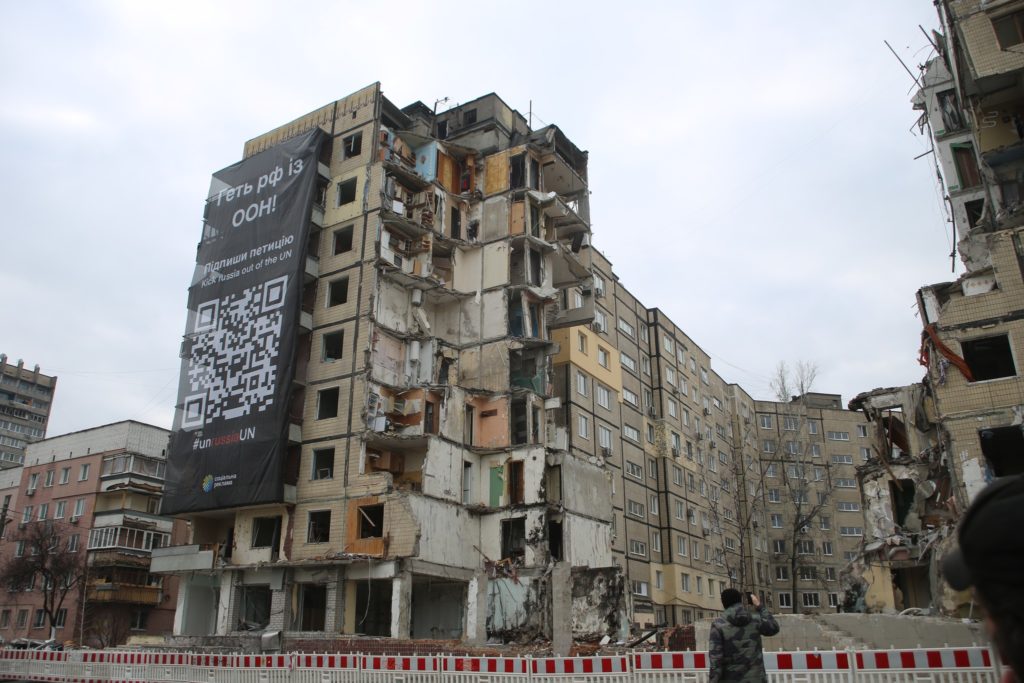
But sometimes it’s important to stop the flywheel of this endless toxic spiral of guilt, or it can drown you completely. The war affected every person I know profoundly differently, our losses and traumas are completely incomparable, impossible to measure up against each other. Among my friends, loved ones, and good acquaintances are military men and women, veterans, refugees, people who lost their homes, fallen soldiers and civilians, widows, wives of soldiers who disappeared, people who endured captivity and torture, mothers who buried sons, people left disabled by the front. There is such variation in misfortune that it’s very easy to drown in pain. And we do drown. And the next day, we choke with laughter. Tragic and funny – everything is mixed now.
So let there be a party too, let the people I love have some fun. Let there be wine and a playlist of favorite music, warm hugs, awkward dancing. In fact, for the first time in my life, I celebrate my birthday like this, assembling a puzzle of my very different friends. Before, I always lacked something – money, mood, or the confidence that such different people would feel comfortable together. But I dared and now I look around in amazement. Everyone is so beautiful, still so young. Here it is – a portrait of my generation. Bright free people who want to live in their own country and fight for it in various ways, not letting themselves wonder too often – what will become of all of us?
Today, we laugh, dance, even sing. I keep looking around me. Here’s a beautiful, seemingly cheerful woman picking the music for the next dance. Last winter, she lost her beloved husband in the war, but in the gift she brought I found a card signed with three names — this woman, her late husband, and their daughter; they still refer to him in the present tense. And here – I count – one, two, three, four men in civilian clothes, though in truth they now serve in Ukraine’s Armed Forces, and some have just returned from the front. Here are two heads of one of the most powerful foundations supplying the front with thousands of drones and training tens of thousands of soldiers. Here’s my friend whispering to me the best possible news – she and her husband have planned to have a baby, despite him currently fighting on a very dangerous frontline. And here are some other friends of mine who suddenly felt they don’t know how to preserve their marriage; the pressure from various wartime shocks and destruction of their house from a Russian shell became unbearable for both, though they clearly love each other.
And here’s my own husband dancing – I haven’t seen him this cheerful in a long time. But that’s an illusion. He has clinical depression, severely exacerbated by military service, and especially the existential experience he went through last May in Bakhmut. Back then, my husband and his unit found themselves trapped and for five days without food, weapons, almost no water or communication, lay in a pit under endless enemy fire. For 115 hours, he and his comrades urinated into cut plastic bottles, counted the minutes and endlessly said goodbye to life. I was also counting the minutes in Kyiv, because for five days I didn’t know what was happening to my husband, exactly where he was, and whether there was any chance I’d see him again. Oddly, they were saved by the rain. Torrential, almost tropical rain. For the first time in all these days, the shelling stopped, and my husband and his comrades managed to get out of their position. Soaking wet, they walked past the remains of smashed military equipment and the dead bodies of Ukrainian troops they couldn’t take with them. All men from that unit survived then, however one of them started stuttering from the stress, and later lost the ability to speak…

My husband recently was invited to work in Kyiv, although still in the ranks of the army. But I often realize those five days profoundly changed him. Sometimes I feel such scorched emptiness in him, such darkness, that I’m afraid to look deeper.
I don’t know what lies ahead for him and me, just like for each of these beautiful people. No one has a crystal ball to foresee what the fate of Ukraine and the world overall will be It’s hard for me to think about whether the Western world we’re so eager to be on the same team with will be able to protect the people I love. It hurts me to watch my 13-year-old son select classes on military analytics at his school, take interest in drone production, and watch videos of one of the Ukrainian assault brigades recruiting new soldiers. What will become of all of us when he comes of conscription age? This thought paralyzes me.
But for now we’re dancing. Because we’ve earned one little party and a normal peaceful happy future. Oh, and the film… I’ll keep working on it, because some plans for the future are a necessary pillar of survival.
Related:
- I’m done believing we’re the stupid ones, Ukrainian soldier tells Jonathan Franzen
- Russian attack was inevitable for Ukraine, acclaimed writer says
- Over 30 Ukrainian writers died defending Ukraine, with more than 80 currently serving
- “No David and Goliath, just consistent genocide of Ukrainians”: writers reflect on Russia’s war
The post But now we dance appeared first on Euromaidan Press.


